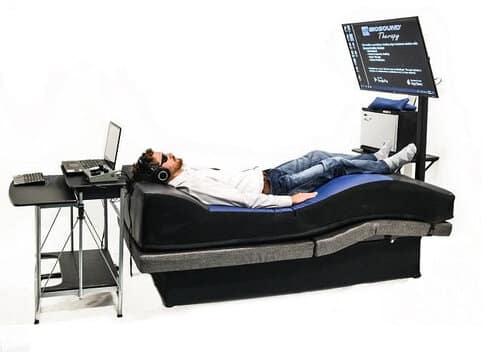Request a Callback
"*" indicates required fields
PPD Treatment
In a world that seems increasingly uncertain, it’s not uncommon for individuals to develop a sense of mistrust and suspicion towards others. But what happens when this mistrust becomes a pervasive pattern in one’s life, interfering with relationships and daily functioning?
Enter Paranoid Personality Disorder (PPD), a condition characterized by an extreme distrust of others and a constant suspicion that they have malicious intentions.
From the constant skepticism that fuels their interactions to the intense fear of betrayal, individuals with PPD navigate a world fraught with paranoia.
What Is Paranoid Personality Disorder (PPD)?
Paranoid Personality Disorder (PPD) is a type of personality disorder characterized by intense and pervasive mistrust and suspicion of others. Individuals with PPD are often highly sensitive to perceived criticism or rejection and may interpret even minor interactions with others as evidence of malevolent intent. This can lead to a range of behaviors, such as avoiding social situations, being argumentative or hostile, and being overly defensive.
While PPD is a relatively uncommon disorder, it can have a significant impact on an individual’s quality of life. Without treatment, the symptoms of PPD can worsen over time, making it more difficult for individuals to form and maintain relationships, hold down a job, and participate in social activities.
Symptoms Of Paranoid Personality Disorder (PPD)
The symptoms of PPD can vary widely depending on the individual, but some common characteristics include:
- Developing a deep and pervasive mistrust of others, even when there is no evidence to support this belief.
- Being highly sensitive to perceived criticism or rejection, which can lead to social isolation or hostility towards others.
- Being argumentative or defensive, even in situations where it is not warranted.
- Developing a pattern of suspicion that can interfere with work, school, and other areas of life.
- Being unwilling to confide in others or share personal information for fear of being betrayed.
- Being prone to anger or aggression, especially when feeling threatened or attacked.
While these symptoms can be difficult to live with, it’s important to remember that individuals with PPD are not intentionally trying to be difficult or unreasonable.


Causes Of Paranoid Personality Disorder (PPD)
The exact causes of PPD are not well understood, but researchers believe that a combination of genetic and environmental factors may contribute to its development. Some are
- A family history of personality disorders or mental illness.
- Childhood trauma or abuse.
- Growing up in an unstable or unpredictable environment.
- Being exposed to traumatic events or violence.
While these risk factors may increase the likelihood of developing PPD, it’s important to remember that not everyone who experiences them will go on to develop the disorder.
Criteria And Assessment for Diagnosing PPD
Diagnosing PPD can be challenging, as the symptoms of the disorder can be difficult to distinguish from other mental health conditions. However, mental health professionals use a variety of criteria and assessments to help identify PPD and rule out other potential causes.
Some common criteria for diagnosing PPD include:
- A pervasive distrust of others and a belief that they have malicious intentions, as evidenced by at least four of the following symptoms:
- Being suspicious of others without justification.
- Being unwilling to confide in others or share personal information.
- Holding grudges or being unforgiving.
- Being quick to perceive attacks or insults.
- Being prone to anger or aggression.
- Being distrustful or suspicious of romantic partners.
- Suspecting others of being unfaithful or disloyal.
In addition to these criteria, mental health professionals may use assessments such as the Minnesota Multiphasic Personality Inventory (MMPI) or the Thematic Apperception Test (TAT) to help identify PPD and rule out other potential causes.
The Impact Of PPD On Mental Health
Living with PPD can be incredibly challenging, as the symptoms of the disorder can interfere with an individual’s ability to form and maintain relationships, hold down a job, and participate in social activities. Additionally, the constant fear and suspicion that are characteristic of PPD can take a toll on an individual’s mental health.
Some of the potential impacts of PPD on mental health include:
- Anxiety and depression: The constant fear and suspicion can worsen over time without treatment.
- Social isolation: Individuals with PPD may avoid social situations leading to feelings of loneliness and isolation.
- Interpersonal conflict: The suspicion and hostility can lead to conflict and tension in relationships, making it difficult to form and maintain healthy connections with others.
- Self-esteem issues: The constant suspicion and fear that are characteristic of PPD can lead to feelings of inadequacy or worthlessness, which can impact an individual’s self-esteem and overall sense of well-being.


We believe in Holistic Therapies.

Biosound Therapy
Biosound Therapy is the integration of Biofeedback, Therapeutic Music, sound healing massage, and guided imagery. The guided imagery selections on the Biofeedback Bed are designed to address the guilt, fear, shame and trauma associated as underlying issues for most dealing with addiction. These moving meditations begin with a journey to a completely relaxed state of mind. Then, utilizing a unique echo effect, powerful and positive affirmations are delivered. This combination helps the client overcome those deep rooted, negative patterns of thought and behavior.
- Relieves pain & stress
- Assists with Detoxification Treatment
- Lowers cravings, impulse behavior and racing thoughts
- Lowers anxiety & depression

Equine Psychotherapy
Equine-Assisted Therapy is used to treat patients challenged with everything from drug and alcohol abuse dependency and post-traumatic stress syndrome. The therapy takes advantage of the mental and physical exercise that working with a horse can provide. Equine therapy:
- Helps clients learn to identify and cope with feelings
- Promotes Effective Communication Skills
- Helps Addicts Better Manage Behavior
- Teaches How to Set Boundaries
- Restores Self-Esteem and Self-Worth
*This is an optional, additional therapeutic therapy available after clinical treatment hours.

Massage Therapy
Clients at Relevance receive weekly massage therapy from our Licensed Therapists. Some additional benefits include:
- Release of ‘feel-good’ hormones. According to the American Massage Therapy Association (AMTA), massage helps to increase serotonin and dopamine (feel-good hormones) and decrease cortisol which is related to stress.
- Reduce agitation and anxiety and ease sleep problems.
- Provides a natural, alternative method of healing, free of drugs.
- Helps with the removal of metabolic waste. Therapeutic massage triggers or stimulates the body’s parasympathetic nervous system. This in turn can increase circulation and promote the effectiveness of the lymph system. The lymph system helps to alleviate pain symptoms and is responsible for removing the body’s metabolic waste build-up.
- Provides the client with a connection to their body, and improves or increases body awareness.
Treatment Options For Paranoid Personality Disorder (PPD)
While there is no cure for PPD, there are a variety of treatment options that can help manage its symptoms and improve an individual’s quality of life. Some common treatments for PPD include:
- Psychotherapy: Talk therapy can be an effective way to help individuals with PPD identify and challenge their maladaptive thought patterns and behaviors.
- Medication: While there are no medications specifically approved to treat PPD, some medications may be helpful in managing symptoms such as anxiety or depression.
- Support groups: Support groups can provide individuals with PPD with a safe and supportive environment in which to connect with others who understand their experiences.
It’s important to note that treatment for PPD can be challenging, and it may take time to find the right combination of therapies that work for each individual.
Support Groups And Resources For Individuals With PPD
Living with PPD can be isolating and challenging, but there are many resources and support groups available to help individuals with PPD and their loved ones. Some of these resources include:
- National Alliance on Mental Illness (NAMI): A national organization that provides education, support, and advocacy for individuals with mental illness and their loved ones.
- Personality Disorder Awareness Network (PDAN): A nonprofit organization that provides support and resources for individuals with personality disorders.
- Online support groups: Many online communities exist for individuals with PPD, providing a safe and supportive space to connect with others who understand their experiences


Hope And Recovery For Individuals With PPD
Living with Paranoid Personality Disorder can be incredibly challenging, but it’s important to remember that recovery is possible. By seeking professional help, building a supportive network of loved ones, and practicing self-care, individuals with PPD can learn to manage their symptoms and improve their quality of life. By breaking down the walls of misunderstanding and increasing awareness of this often-misunderstood disorder, we can create a more compassionate and supportive world for all those affected by mental illness.

Get the Help You Need, Now.
Start your journey to substance abuse recovery with us in New Jersey today.




